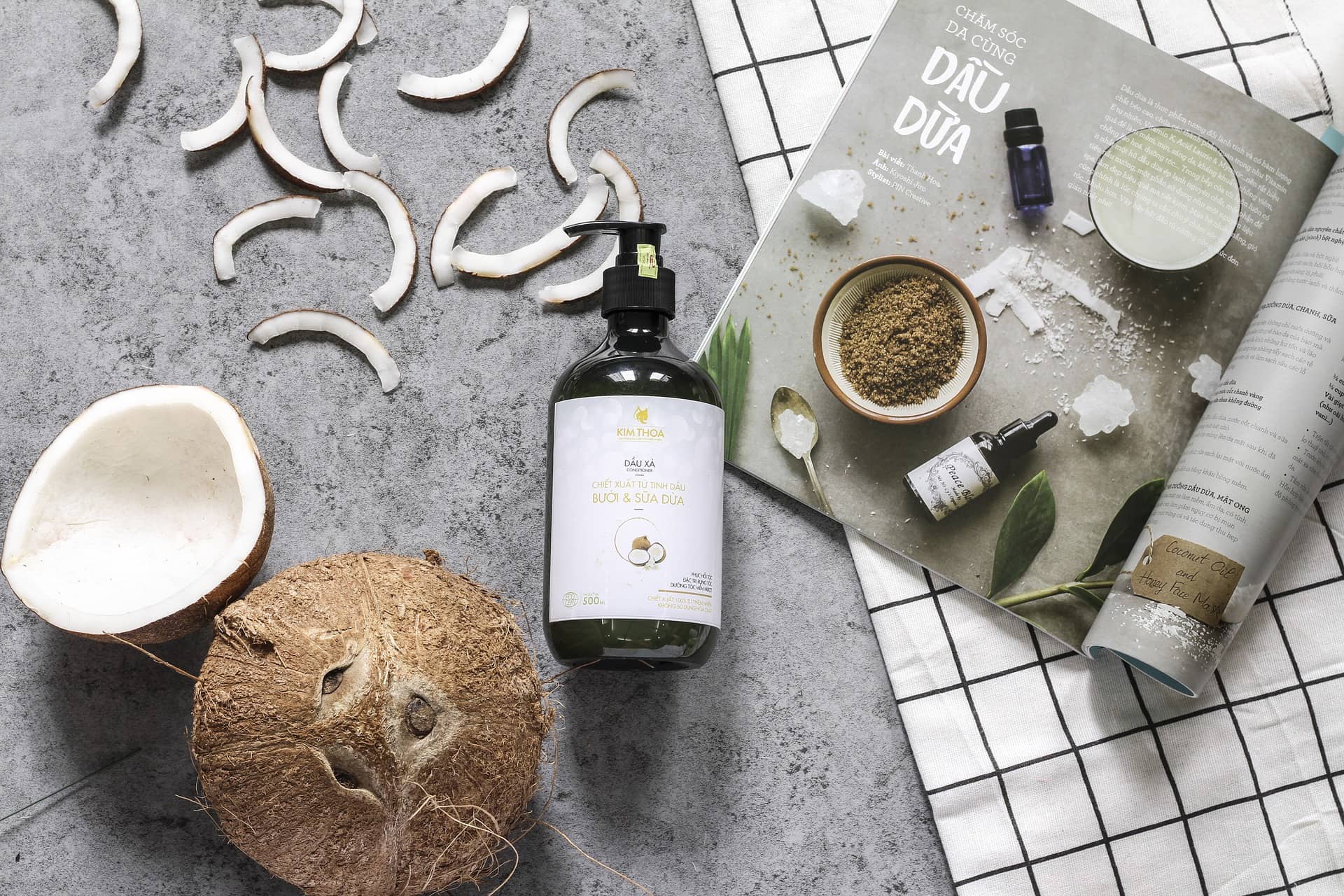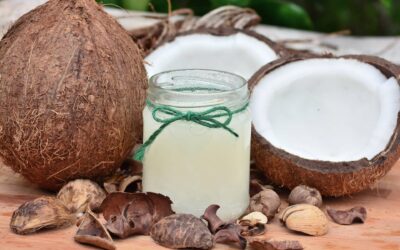In recent years, there has been significant growth in the coconut oil market in the EU region. This can be attributed partly to the growing awareness of the benefits of natural and organic eating habits for a healthy lifestyle in the EU region. Besides, the growing industrial application of coconut oil in the cosmetic and pharmaceutical industries has contributed greatly to the growth of coconut oil in the EU region.
Virgin coconut oil (VCO) is widely used in the food industry for its outstanding health benefits. This can be seen as it promotes HDL cholesterol levels, helps for weight loss, enhances heart health, remedies Alzheimer’s disease, improves bone health, and many more. Above all, what makes virgin coconut oil more popular is its pleasant aroma, delicious taste, presence of healthy fatty acids, powerful antioxidants, and the countless essential vitamins.
With all these outstanding health benefits, many today rank virgin coconut oil amongst the top vegetable oils and categorize the oil as a “superfood.” The coconut tree is even referred to as the “tree of life” and also as the “lifeline of health.”
Production Descreiption of Virgin Coconut Oil
The coconut oil is normally obtained from the copra, normally referred to as the white meat found within the coconut fruit. The virgin coconut oil is obtained through a mechanical cold-pressed method and without the use of any chemicals. With the cold-pressed method, the natural form of the oil is maintained so as the nutrients of the oil. The oil is therefore characterized by the rich taste and smell of the coconut, colorless, sediment-free, free from rancid odors or tastes and melts as easily as possible.
Virgin Coconut Oil is normally produced within a 48-hour window after the harvest of the coconut fruit to maintain freshness. The quality of the oil is best when extracted from the first pressing of the copra. Also, it is common practice for the oil to be centrifuged at 8,000 rpm in a bid to separate the oil from any solids to increase quality and quantity. The main concerns of buyers to determine the quality of the virgin coconut oil lies in the moisture level which should not exceed 0.5% and the lauric acid content which is best at ranges between 45 and 50%.
Virgin Coconut Oil and the Trends for the European Market
With growing health concerns and the pandemic situations, many Europeans are shifting towards healthy diets which include vegetable oils. This has practically led to the increase in the importation of vegetable oil in the EU market. The growing interest in virgin coconut oil in the European markets can be attributed to the characteristics of the oil compared to other vegetable oils. Virgin coconut oil does not contain trans-fatty acids and is rich in healthy MCTs (Medium Chain triglycerides) which are healthy fatty acids. Also, the oil is not refined which means no chemicals are used in the production of the oil.
For cooking, some researchers have been able to demonstrate that coconut oil releases less concentration of toxic chemicals when heated for a long time compared to other vegetable oils like sunflower oil (1).
The top segments for virgin coconut oil in the European market are the direct consumer market and the food industry. Looking at the health and wellness trends and for the direct consumer, the coconut oil is packed to be used as cooking oil. For the food industry, virgin coconut oil is widely used for the production of healthy supplements, high-end products, and snacks. Notwithstanding, virgin coconut oil is also imported in Europe for the production of cosmetics like lip gel, luxury soaps, make-up for women, and anti-aging creams.
Common Considerations for Importing Virgin Coconut Oil In the EU Market.
Measures that may apply for the importation of Virgin Coconut Oil (VCO) in the EU and some key considerations can include;
- EU tariffs
- The rules of origin
- Taxes and other additional duties that may apply
- The required import procedures and formalities (Custom Proceudures)
- And the product requirements.
It is invaluable to familiarize yourself with the above measures and considerations when looking to import into the EU market. This can help for a better import experience and a smooth flow of engagement with authorities (like customs) in the designated member state in the EU region.
Some Key Facts About Importing into the EU
The EU (European Union) market is considered a Customs Union for the 27 countries that made up the EU as a single territory. As a single territory, goods can move freely among member states and a common customs tariff is applicable for goods that are imported into the EU from other countries.
Businesses looking to operate or export into the EU can benefit from the availability of over 400 million ready consumers and other greater commercial opportunities in the EU.
It is known that the EU import tariffs are among the lowest in the world. These has gone a long way to encourage imports from developing countries, making the EU region the most open market to developing countries. Excluding fuel imports, the EU imports from Least Developed Countries (LDC’s) more than China, Japan, Canada, and the US combined all together.
It is noted that two-thirds of importations into the EU are mainly raw materials needed as intermediary goods and components for further production processes. With this fact, it was realized not only exports are essential for economic growth and the creation of jobs but also imports. Importation of coconut oil is widely used among industries like the food industry, pharmaceutical, and cosmetics in the production of finished products for the consumers in the respective industry markets.
The main importers of coconut oil in the EU region are Germany, Belgium, France, Poland, Italy, and the Netherlands. On the other hand, the main exporters of virgin coconut oil in the EU market are Indonesia, Malaysia, the Philippines, and Sri Lanka.
The Top Importers of Coconut Oil In the EU Market
The following list is for the top importers of coconut oil and its fraction whether or not refined but excludes crude coconut oil.
| Importers | Value Imported in 2020 (USD thousand) | Trade balance in 2020 (USD thousand) | Quantity Imported in 2020 | Quantity Unit | Annual growth in value 2019-2020 (%) | Share in world Imports (%) |
| Germany | 70,654 | -50,296 | 60,853 | Tons | 7 | 5.4 |
| Belgium | 47,965 | -43,352 | 40,870 | Tons | -1 | 3.6 |
| France | 38,186 | -28,523 | 29,889 | Tons | 5 | 2.9 |
| Poland | 32,097 | -28,376 | 27,246 | Tons | 16 | 2.4 |
| Italy | 28,476 | -12,566 | 23,496 | Tons | -20 | 2.1 |
| Netherlands | 20,219 | 222,622 | 11,785 | Tons | 4 | 1.5 |
| Austria | 15,069 | -14,952 | 9,937 | Tons | -14 | 1.1 |
| Greece | 9,197 | -9,111 | 7,140 | Tons | 29 | 0.7 |
| Ireland | 7,936 | -7,865 | 4,816 | Tons | 4 | 0.6 |
| Sweden | 5,800 | 9,328 | 4,051 | Tons | 8 | 0.4 |
Requirements for Importing Virgin Coconut Oil into The EU
Documents Required for Customs Clearance;
Commercial Invoice
Customs Value Declaration; a document to declare if the goods are worth above EUR 20,000.
Customs Import Declaration (SAD); The Single Administration Document is required to declare the goods to the respective customs authorities of the EU member state. It is normally filed along with the Custom Value Declaration.
Proof of Origin; to show the origin of the product and help to determine the origin status of the goods which can be identified by the Certificate of Non-preferential origin or the Certificate of Preferential Origin.
Entry Summary Declaration (ENS); This is declared in advance at the first customs office of entry for the customs to undertake a risk analysis for safety and security purposes. This is required 24 hours before loading at the port of departure for container loading. A few hours before loading for air freights and short sea freights.
Obtaining an EORI number; The Economic Operator Registration and Identification (EORI) is an identifier number for customs purposes issued to all economic operators be it a company or an individual engaged in activities covered by EU customs legislation.
Transport Documents
Bill of Lading
FIATA Bill of Lading for multimodal and combined transport document. Other transport documents may include Road Waybill (for road transportation), Air Waybill (for air transportation), and Rail Waybill for railway transportation.
ATA (Temporary Admission) Carnet from the Chamber of Commerce
TIR carnets for transits by road
Freight Insurance
Packing List
Tariffs
According to the EU law R2204/99 the ERGA OMNES, also referred to as the “third country duty” of 12.80% is applicable for the importation of virgin coconut oil. They might be some other tariffs depending on the country the oil is coming from as tariffs are frequently updated and most often without prior notice. It is important to stay updated with tariff laws when importing from other countries.
Rules of Origin
Also, countries with agreements with the EU region may also enjoy or qualify for lower or zero preferential tariff benefits. The generalized tariff preference (GSP) scheme is applicable for certain beneficiary countries and products which includes agricultural products.
Taxes
For taxes, there is a 7% value-added tax rate (VAT) for vegetable oils entering into the EU.
The Customs Process
When goods arrive at the customs office of first entry to the EU, the goods are placed under customs supervision for not more than 90 days until they are released for circulation or re-exported. During this period, the customs will carry out the clearing process and make sure all the import requirements, including the payment of tariffs and taxes are met before the goods are “released for free circulation.”
Quality Requirements To be In Compliance Within the EU Market.
In other to successfully market virgin coconut oil in the EU market, it is a must for the quality of the oil to be of top standard. Also, buyers from the EU are more concerned about the quality of the coconut oil they buy and if they fail to pass or comply with the regulations, it can be difficult for the oil to gain access into the EU market.
Before importing virgin coconut oil into the EU, it must meet the following requirements;
- Hygiene control and traceability
- Disclosure of food contact materials
- Disclosure of the product composition
- Oil must be free from estraction solvents
- Free from contaminations
- Free from erucic acid content
- Clear labeling with nutritional facts and allergens, not leaving out health claims
Other compliance requirements may include;
- Food Safety Certifications (IFS, BRC)
- Organic Certifications
- Fair trade certifications
- Corporate responsibility
- Sustainability sourcing certifications.
Packing and Labelling
There are packing and labeling legislations that every importer or exporter must abide by when venturing into the EU market. The packing must ensure the product is safe for transport and the labeling must provide essential information about the virgin coconut oil like best-used dates, the composition of the product, manufacturer, country of origin, specifications, and storage of the product.
It is also very important to indicate the category of the oil as “virgin coconut oil.”
Things to consider when sourcing a supplier or manufacturer.
When sourcing a supplier or manufacturer, it is very important to make sure the manufacturer of the virgin coconut oil adheres to or possesses the above compliance certifications and requirements for exporting virgin coconut oil into the EU market. To validate or back the manufacturer’s claim, it is important to pay a visit to the manufacturing plant to make sure all the requirements are met and to validate the suppliers’ authenticity.
It is also important to understand the production process of the virgin coconut oil to make sure it is of the right standard and request for samples to run your own tests of the oil. It is important to make sure the oil is organic and of high quality. Consider looking at how the products for the production are sourced and if they meet the sustainable requirements.




